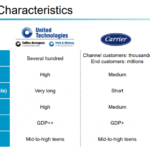
It’s hard to believe that it’s been almost three years since COVID-19 hit the ground and something is up with just about everything, including every business model. Since then, organizations have been trying to adjust. Most employers let their people work remotely as much as possible. Others remodeled their physical workspace.
While the virus is not gone, cases are slowing, and President Biden has declared the end of the pandemic. So, here are the HR trends for the post-pandemic workplace.
-
The Issue
-
HR Trends More Remote Work
-
Bringing People Together
-
More Discussion About Location-Based Compensation
-
Dealing with an International Workforce
-
More Flexibilities and Responsibilities
The Issue
As the viral outbreak becomes more manageable – right now, at least — organizations are increasingly making moves aimed at supporting their employees while protecting the health of their core business. They are rethinking what work looks like, as well as the needs, abilities, and potential of their people. In general, the pandemic has resulted in HR becoming more aware of each employee’s overall wellbeing.
HR Trends More Remote Work
When the pandemic first began to wane, some assumed that more workers than not would return to the workplace. However, due to either sporadic outbreaks or pushback from employees, many employers have experimented with some hybrid of remote and on-site work. Others have embraced an all-remote arrangement.
In any case, the pandemic has caused employers to learn an important and valuable lesson contrary to widespread popular belief, employees generally do not require being watched like a hawk to do their jobs. In fact, scores of workers, citing autonomy and flexibility, purport to be more productive working from home.
As it is, the number of people mainly working from home triple between 2019 and 2021, according to the United States Census. So, expect remote work to largely continue.
Bringing People Together
Remote work isn’t perfect, however, since employees do lose the camaraderie and relationships that on-site work provides. To help offset that, HR specialists are increasingly finding novel ways to collaborate and re-establish personal connections. This can include hybrid schedules, newly designed workspaces that promote better-fortified connections when employees are in the office, and planning sessions and retreats. It’s all part of the HR transformation.
More Discussion About Location-Based Compensation
The height of the pandemic saw many employees relocating from the municipalities where their offices are located to more affordable towns and rural communities. Some of them left their state or even moved to another country. As long as the Internet is available, why not, right.
Well, now there’s a debate about whether employees who move to less-expensive places should be paid the same as those who don’t, or whether pay should be based on the cost of living of a given area in which an employee works. These discussions will continue.
Dealing with an International Workforce
The pandemic underscored much, including the fact that we’re living and working in an increasingly global world. Supply chains were interrupted during the outbreak, driving home the need for multinational employers to ensure the presence of resources and talent worldwide. What organizations must grapple with, though, is maintaining their identity, brand, and mission while necessarily embracing new workplace cultures.
More Flexibility and Responsibilities
While organizations will always prioritize performance, they increasingly “get” that they must see employees as individuals so that they and the organization can grow. To that end, employers are focusing more on employee well-being, giving their people more flexibility and responsibility, and fostering more trust all around.
The bottom line is that if you take these HR trends for the post-pandemic workplace to heart, you won’t be left behind. If you need help putting it all together, we recommend leading global consultant Mercer for its extensive experience, accreditation, and track record of success.






